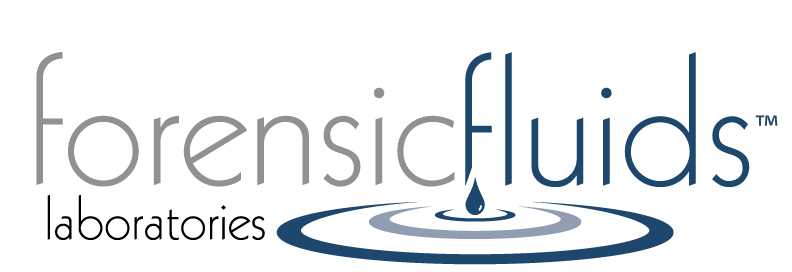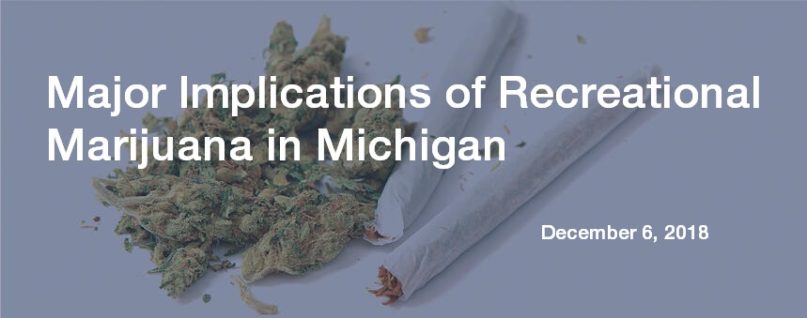Major Implications of Recreational Marijuana in Michigan
On November 6, 2018, Michigan voters said “yes” to the legalization of recreational marijuana. With over 4.3 million voters reporting to the polls, 56 percent voted in favor of the 18-1 proposal. Now, on December 6, marijuana will be legalized to adults over the age of 21.
The new law states adults who are of the legal age can possess up to 2.5 ounces of marijuana in public and can consume marijuana in the privacy of their homes, but not in public. Of-age adults may keep up to ten ounces at home, and grow up to 12 plants for personal use. Those in possession may also give, but not sell, marijuana to friends and family who are also 21 or older.
The Department of Licensing and Regulatory Affairs of Michigan plans to develop and accept the first business license for recreational marijuana sales by December 2019. Because the state does not have legal dispensaries, citizens still cannot legally sell or buy marijuana.
How recreational marijuana will impact the business community
Proposal 1 does not regulate workplace policies of employers. It still allows employers to prohibit possession or use of marijuana in the workplace, or hinder disciplinary action upon violating a workplace drug policy.
Balance legalization with workplace tolerance
Despite the statewide legalization, your employer maintains the right to refuse to hire or can take disciplinary action for finding marijuana in the system of a candidate or employee. Employers may still uphold policies that outline their regulations of acceptable workplace behavior, in a way to uphold the zero-tolerance policies for their business. This is the same as alcohol.
Law enforcement
Since the recent pass of recreational marijuana, a handful of Michigan counties are beginning to subtly dismiss low-level charges related to marijuana that will no longer be considered a criminal act after marijuana becomes legal. It is inconclusive if those previously charged with marijuana convictions will be pardoned of their charge. Governor-elect Gretchen Whitmer states she will consider expunging marijuana convictions, but no solid plans have been made.
Drugged Driving
Michigan has a zero-tolerance policy for drugged driving, so any amount of tetrahydrocannabinol (THC), the psychoactive component of marijuana, found in a driver’s blood is considered impaired driving and can be charged like a drunk-driving offense. Much like a breathalyzer that can detect not only the presence of alcohol but also its level, researchers are developing the most efficient way of determining a quick and effective test to administer for suspected drugged driving. According to Forensic Fluids Laboratories, oral fluid testing could be the solution to roadside administration. Lab Director and Founder, Bridget Lorenz Lemberg, offers more than 30 years of experience in the drug testing industry, and notes that developing standard levels of impairment from marijuana is a process over time.
Forensic Fluids Laboratories, a Kalamazoo-based laboratory founded upon special interest in oral fluid testing, was selected to provide confirmation oral fluid testing of suspected drugged driving during a pilot program by Michigan State Police from November 2017 administered in Berrien, Delta, Kent, St. Clair and Washtenaw County. This testing is administered with a handheld device that collects saliva orally from a suspected drugged driver and runs through the device to detect drug presence. In order to be tested for driving under the influence of drugs, an officer must first have probable cause to have suspicion to pull a driver over. An oral fluid sample is then sent to the laboratory.
“The lab methodology is unsurpassed in sensitivity, precision, dynamic range and speed of analysis,” said Lorenz Lemberg. “Our toxicologists certify these results, which are admissible in court. As oral fluid or blood collection levels are associated with various violations, legislation can then be developed to create a standard for THC impairment.”
However, with all the tests, users still build up a tolerance the more they smoke marijuana. This makes determining a standard level of impairment difficult. Drugged driving has an effect on the brain and there are visible signs of significant driving impairment. It is important to understand the degree of impairment is dependent on the level of THC present in the body. According to research conducted by Dr. Andrea Furlan, a staff physician at the Toronto Rehabilitation Institute and an associate professor in the Department of Medicine and the University of Toronto, she and her team have been using Canada’s most advanced driving simulator in their hospital building to portray a virtual reality and a 360-degree projection system to have participants feel almost like they are driving on a road.
In driving effects shown through the simulator, Dr. Furlan concluded drivers under the influence of alcohol had a tendency to drive faster with more unsafe movement with the vehicle. Those under the influence of marijuana, however, were noticed driving slower. She notes it is not necessarily due to the driver maneuvering the vehicle safely, but rather their reaction time is impaired.
She and her team caution alcohol and cannabis have very different effects on the human brain. While alcohol first impacts one’s judgement, cannabis does not. It is easier for a person using marijuana to self-regulate their judgement to determine safety and decision-making. However, Dr. Furlan notes many recreational marijuana users mix cannabis with alcohol, and if used together, the user will be impaired by the alcohol but also different areas of the brain will be affected by the marijuana, being more impaired than only one substance present.


